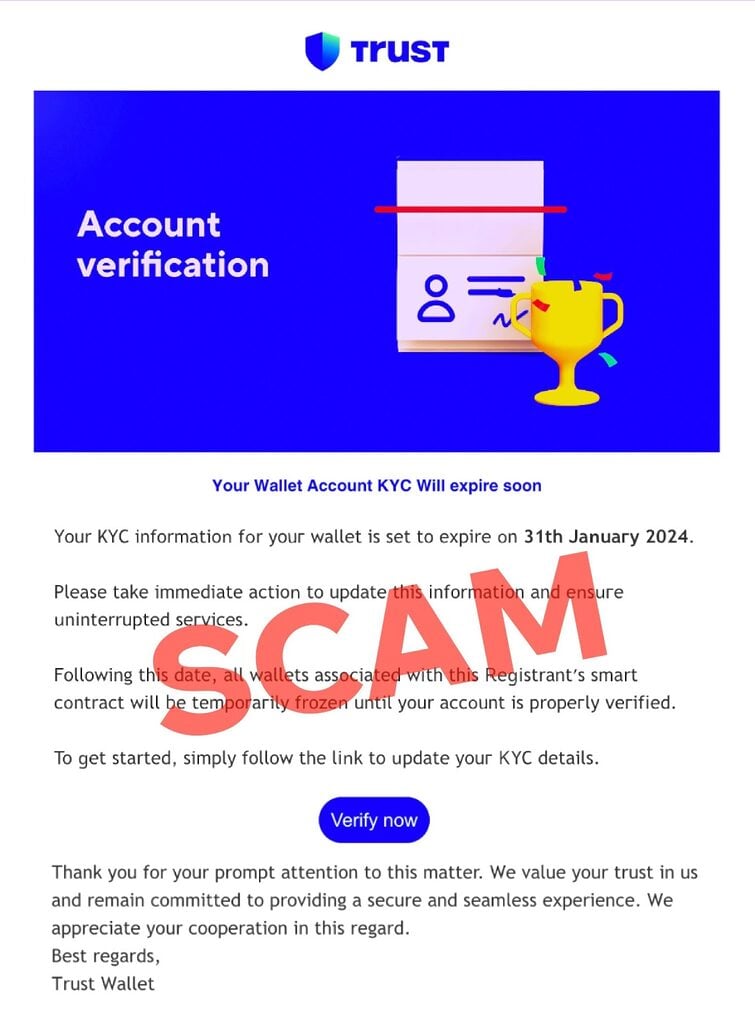
- Trust Wallet has shed light on a new email phishing scam.
- The scam has the potential to affect all users of self-custody wallets.
- This article explains how you can stay safe.
With crypto regulations coming to the fore in recent years, several centralized crypto platforms are working to tighten up controls like the Know Your Customer (KYC) requirement for users to avoid attracting regulatory ire. However, scammers appear to be taking advantage of the trend to target users of self-custody crypto solutions with fraudulent KYC email campaigns, as recently highlighted by crypto wallet provider Trust Wallet.
In this article, DailyCoin details how to spot these fraudulent emails, who is at risk, and how to stay safe.
How to Spot the Scam
In the fraudulent email shared by Trust Wallet, scammers claimed that user accounts would be frozen if they failed to complete KYC requirements by the end of January 2024. The email directs users to satisfy these requirements by clicking a potentially malicious link asking them to submit personal details, including their wallet seed phrases.

However, as highlighted by Trust Wallet, they have not and can not send user emails as they do not collect user emails to create wallets in the first place.
Who is at Risk in the Trust Wallet Email Scam
While on the surface, the scam appears to target only trust wallet users, it is more likely that anyone can fall victim to the scam as the scammers have no way of knowing who is a trust wallet user and are likely sending the email at random. As such, scammers can bait non-trust wallet users into clicking malicious links out of curiosity.
At the same time, scammers may also be employing the same tactic to scam users of other crypto wallets.
How To Stay Safe
The email phishing scam revealed by Trust Wallet tries to pull on emotions like fear and a sense of urgency. However, we are more likely to make mistakes when we rush decisions. Below are some tips to bear in mind.
- If you see an email like this claiming to be from your wallet provider, Trust Wallet advises that you block the sender and delete the email.
- Avoid clicking the link if you receive an email like this.
- Never give out your wallet seed phrases.
- If you are unsure about any information you have received about your wallet, contact the developers via official channels.
On the Flipside
- Scammers are likely already employing the same tactics to target other crypto wallet users.
Why This Matters
Trust wallet is one of the most popular crypto wallets in the world, with over 60 million users. As such, the scam could drain crypto assets from millions of unsuspecting users.
Sponsored
Read this for more about another crypto scam that has recently come to light:
Beware of Crypto Job Scams Targeting Blockchain Developers
See why a recent move from the Ethereum Foundation has stirred concerns:
Ethereum Foundation Adds To Selling Pressure With $1.7M Move

